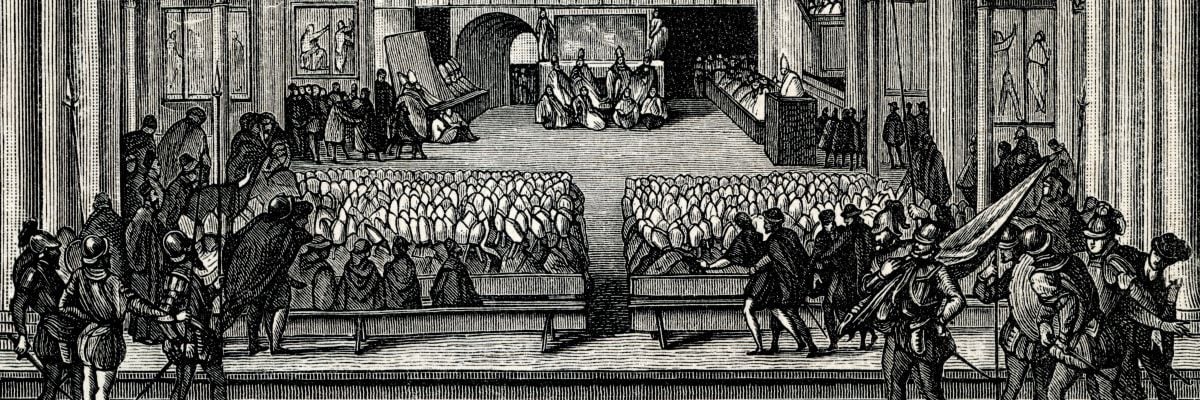
Question:
Answer:
First of all, I am heartened to hear that you recognize how close Catholics and Orthodox are. Although there remain tragic divisions, we shouldn’t overlook the profound agreement between the two. In terms of ecumenical councils, I think that this was largely pragmatic. For instance, the emperor Constantine paid for the travel (and board!) of the 318 participating bishops at the Council of Nicaea, even permitting them to bring guests (for instance, influential monks). The cost and logistics involved would have been difficult or impossible for Pope Sylvester to manage back then.
But I think that your deeper question is whether the pope makes ecumenical councils irrelevant. As Catholics, we believe in both the infallibility of the pope and in the infallibility of ecumenical councils. Think about it this way: on the Judaizer question (the question of whether Gentile Christians need to follow the Mosaic Law to be saved), we get the answer first from St. Peter (Acts 10–11), and then from the Council of Jerusalem (Acts 15). Did Peter have the ability to settle the question? Yes, in the sense that God had shown him the correct answer and preserved him from error. But it was clear that there were some Christians who thought that the apostle was wrong, and the Council of Jerusalem provided additional support. Peter, the first pope, was an apostle. As such, he had the ability to not only speak infallibly, but (unlike modern popes) to enjoy divine inspiration in particular contexts, such as when he preached on Pentecost (Acts 2), or when he wrote 1 Peter and 2 Peter. Nevertheless, the Judaizer controversy wasn’t settled by his acting alone.
Far from making ecumenical councils irrelevant, I would argue that it’s only through the pope that we know which are the true ecumenical councils. Between the legalization of Christianity and the end of 787, there were more than seven attempts to hold an ecumenical council. Famously, in 449, Emperor Theodosius II convened the so-called “Second Council of Ephesus,” under the authority of Patriarch Dioscorus of Alexandria. But the pope condemns this as a “robber council,” and today, neither Catholics nor Orthodox accept its legitimacy. So why do we only have “seven ecumenical councils” during this period? Because these are the seven accepted by the pope.
Without the pope, there’s no clear principle by which to determine which councils are real, and which are robbers. Even the late Orthodox theologian and Bishop Kallistos Ware admitted, “All Orthodox know which are the seven councils that their Church accepts as ecumenical, but precisely what it is that makes a council ecumenical is not so clear.” (And in fact, some Orthodox claim there are really eight or nine ecumenical councils, which demonstrates the lack of clarity on the matter).
The Bible doesn’t render the Church irrelevant, as some Protestants believe—and it’s actually from the Church that we know which are the proper books of the Bible. Likewise, the pope doesn’t render ecumenical councils irrelevant—it’s actually from the pope that we know which are the proper councils.



